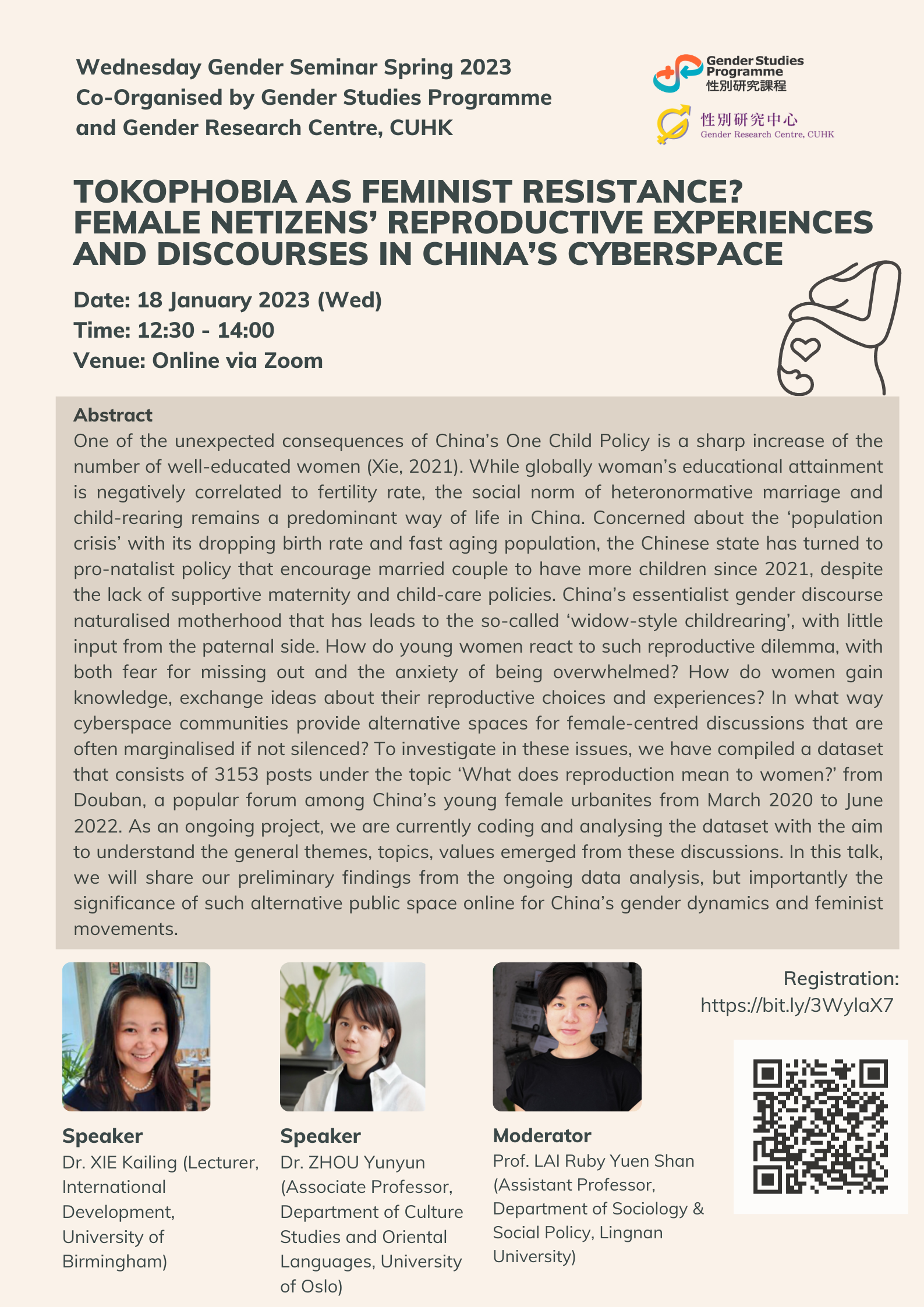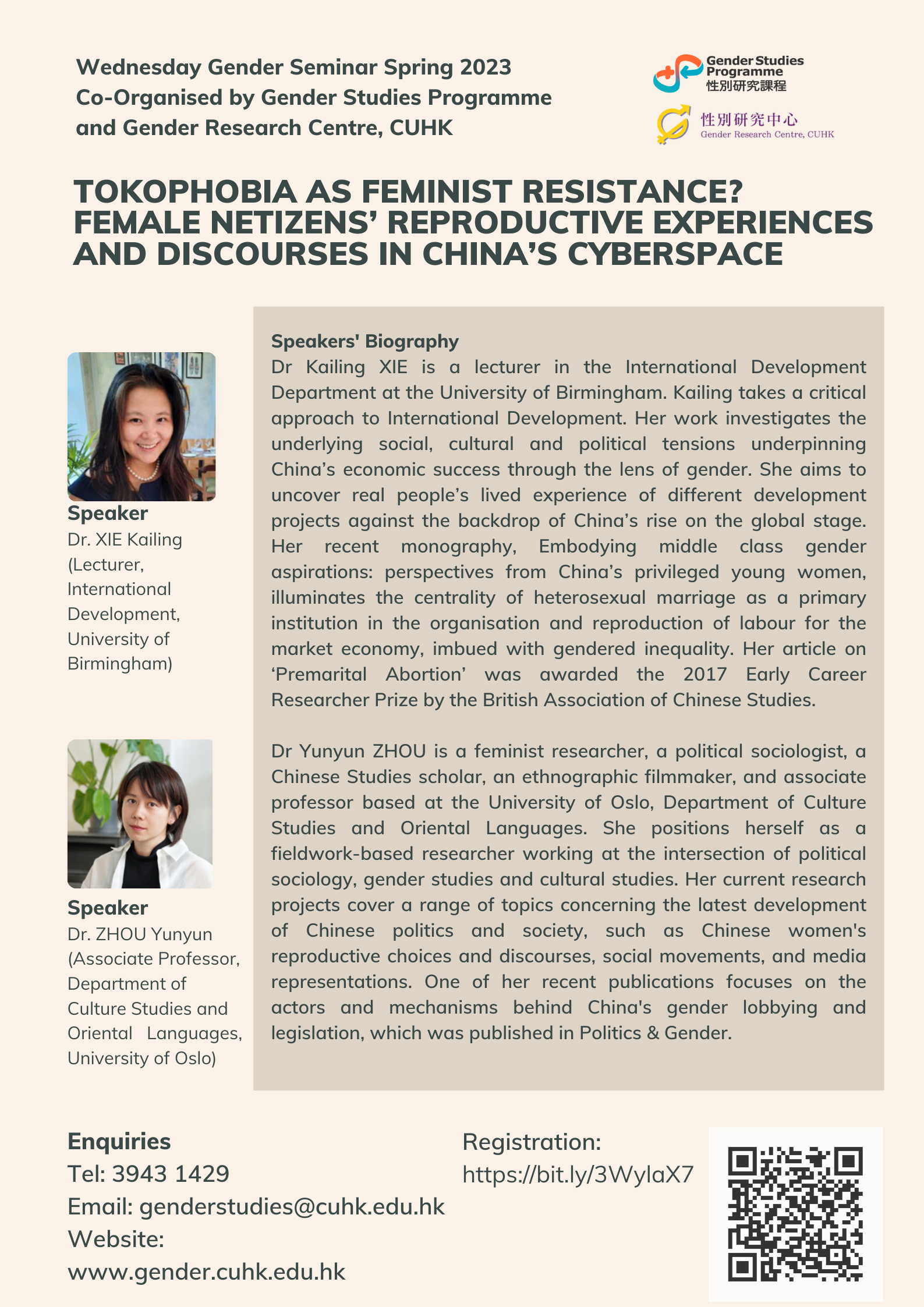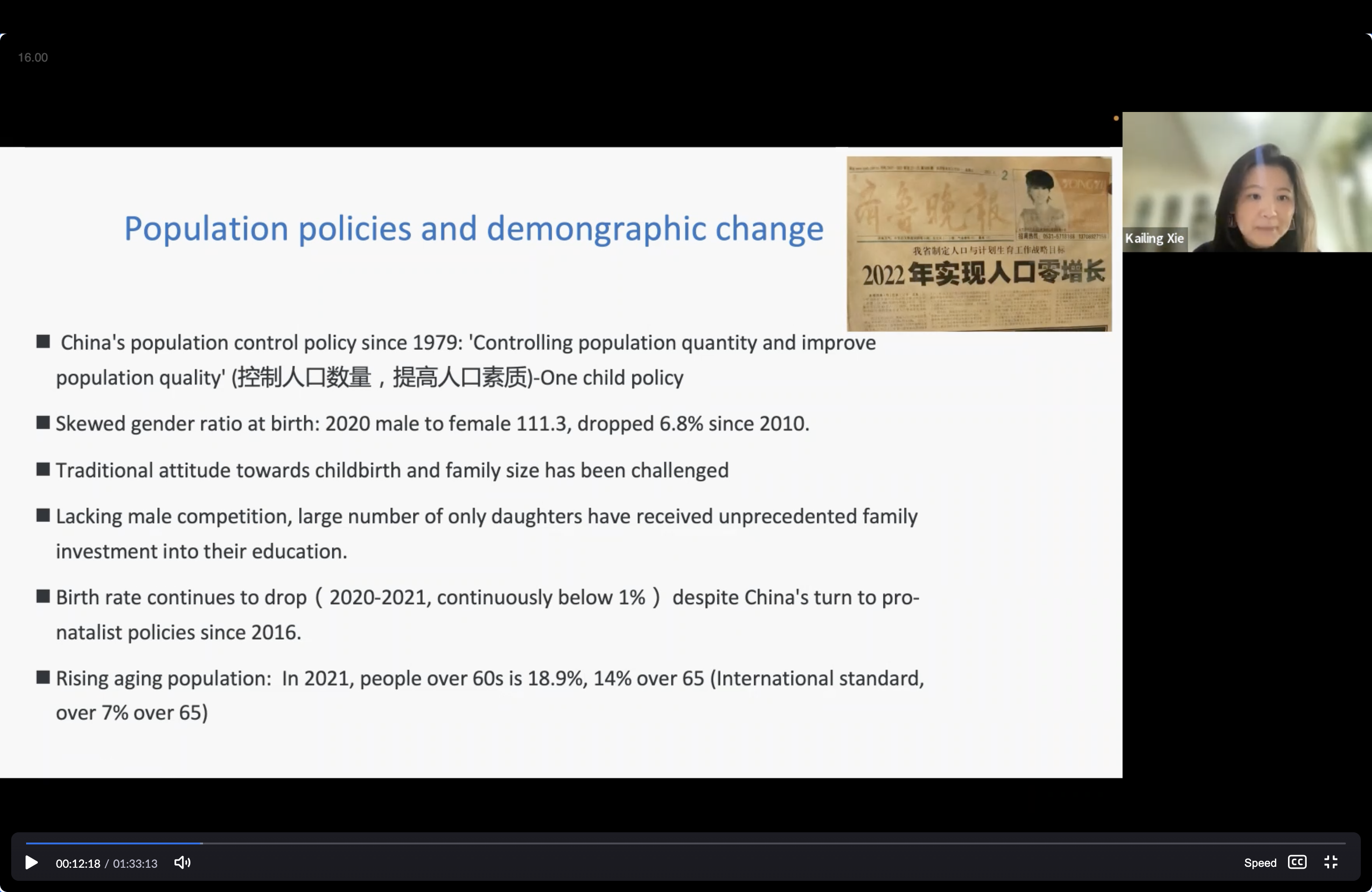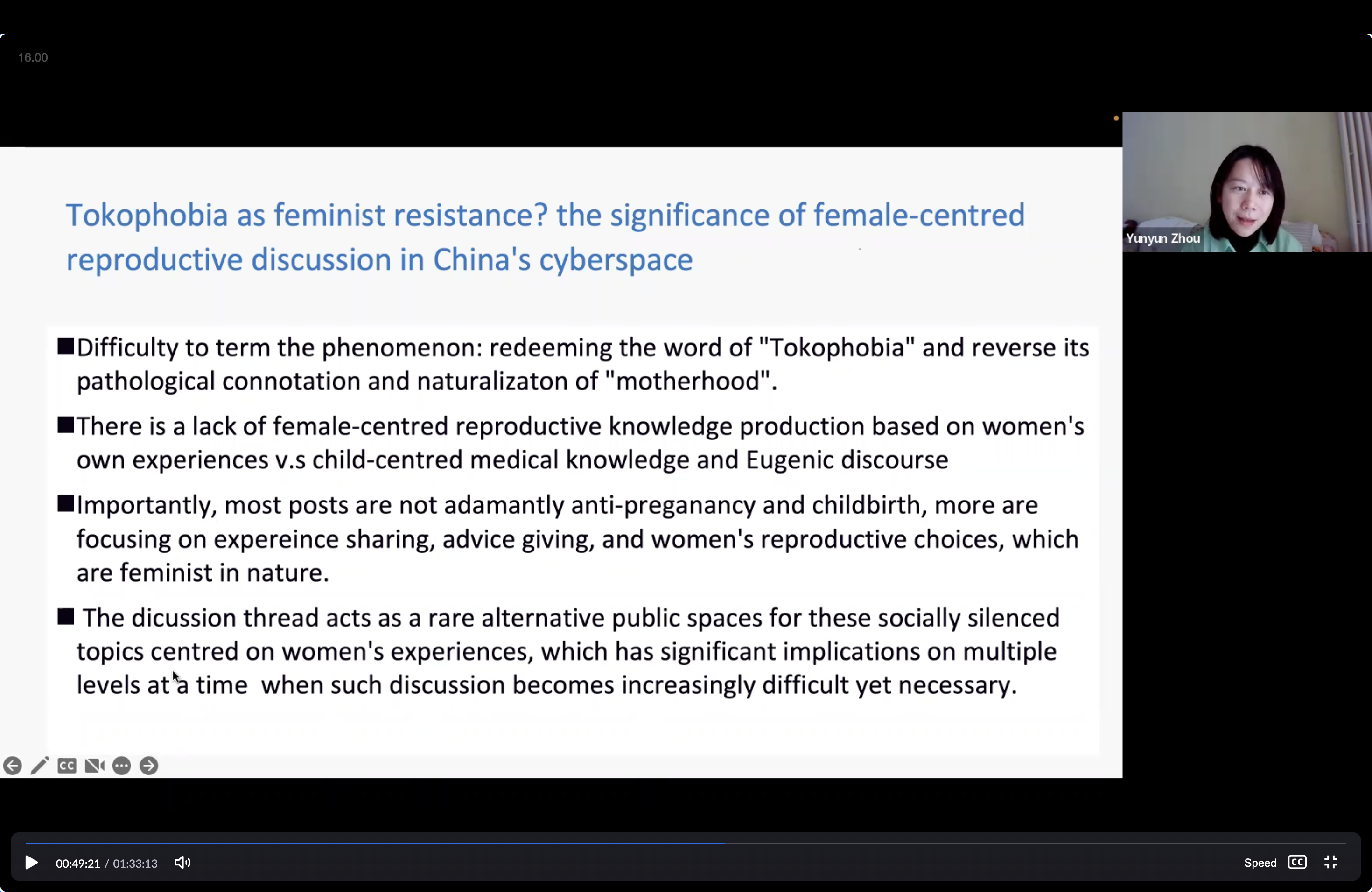Gender inequality related to reproduction is a global issue, and the personal and family spheres, as objects of power control, make individual choices often the result of internalized power structures and gender norms. With the rising number of well-educated women with university degrees and high female labor participation, the fertility rate continues to drop in China. Concerned about the demographic change and the population crisis, the Chinese state turned to pro-natalist policy since 2021, despite the lack of supportive maternity and child-care policies.
This study focuses on young women’s reproductive dilemma posed by patchy patriarchy’s essentialist discourses and their individual desires. It further demonstrates the characteristics of the public cyberspace where women gain knowledge, exchange information and express their opinions about their reproductive experiences. This study also explores the role cyberspace play in shaping gender discourses in contemporary China. Conducted on Douban, a popular forum among Chinese urban young women, the study collected 3153 posts under the topic ‘What does reproduction mean to women?’ and analyzed the most “liked” 100 posts with thematic coding.
The findings suggest that discussions on Douban are predominantly focused on negative experiences of new motherhood. Women are physically and emotionally dehumanized in the process of pregnancy and childbirth. Due to the patriarchal family value and the essentialist gender discourse, motherhood is naturalized and romanticized, which has led to the ‘widow-style childrearing’ and the sacrifice of female individuality and professional career. As a result, in the absence of public support, women have to rely on private sources to address emotional issues and access female-centered reproductive knowledge. The phenomenon of tokophobia presented in online discussions is a resistance to naturalized motherhood. The discussion of childbirth in cyberspace has brought the invisible labor undertaken by women into the public sphere, which is feminist in nature.
撰文: ZHANG, Mengya
1月18日,Xie Kailing 博士和 Zhou Yunyun 博士在線上性別研討會上講演了兩人正在合作進行的研究——「恐育作為女權抵抗?中國網絡空間中女性網民的生殖經驗和話語」。兩位研究者首先勾勒了研究所處的中國語境,中國獨生子女政策使得女性獲得高等教育的機會大大上升,雖然在全球範圍內,婦女的教育程度與生育率呈負相關,但在中國,異性戀婚姻中女性養育子女仍舊是一種具有道德強制力的社會規範。兩位研究者借用 Evans 所提出的「支離破碎的父權」(patchy patriarchy)這一概念,認為將女性生育職責「自然化」、「本質化」的話語仍舊具有某種權威性,成為國家推行政策時的話術,並在公共文化生活中,例如在售賣母嬰用品的廣告中被不斷地生產和傳播。隨著出生率下降帶來的老齡化危機的初現,自2021年起中國政府轉而採取支持生育的政策,女性面臨著愈受嚴峻的生育壓力。而市場經濟驅動形成的以慾望為核心的現代式的對「自我」的追求,以及中國近年來在年輕女性群體中愈受浩大的女性主義聲浪則進一步成為引發女性在網絡空間中關於生育激烈探討的契機。為了探察受過良好教育的年輕女性對這一生育困境的回應,以及網絡空間在這種生育困境討論中的作用,兩位研究者對熱度極高的豆瓣主題帖「生育對一位女性意味著什麼」進行了的話語分析。在以主題式編碼為主的初步話語分析中,研究者們發現大多數的話語都圍繞著生育的消極體驗及其作為一種「被掩蓋的黑暗秘密」展開,並進一步展示了話語群中三個顯著的主題:生孩子作為一種肉體和情感上的雙重創傷;「喪偶式育兒」剝奪了女性的個體性;缺少女性中心的知識生產和對父權制結構的反思。在講演的最後,研究者們進一步指出了這一現象的複雜性:回帖中沒有出現明顯的反對生育的聲音,而是更多地集中在經驗分享,給予建議和女性的不同的生育選擇上,儘管帖子的發表者們並沒有明確自我表明女權主義立場的傾向,但她們關注和討論著與女權主義緊密相關的議題。研究者們認為,網絡空間提供了一種另類的公共空間,使得在社會空間中被迫靜默的女性經驗相互溝通,女性話語得以建構。
撰文: ZHENG, Lin






A
A
A
聯絡我們